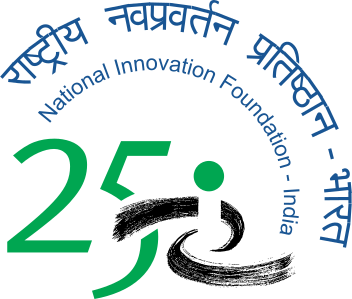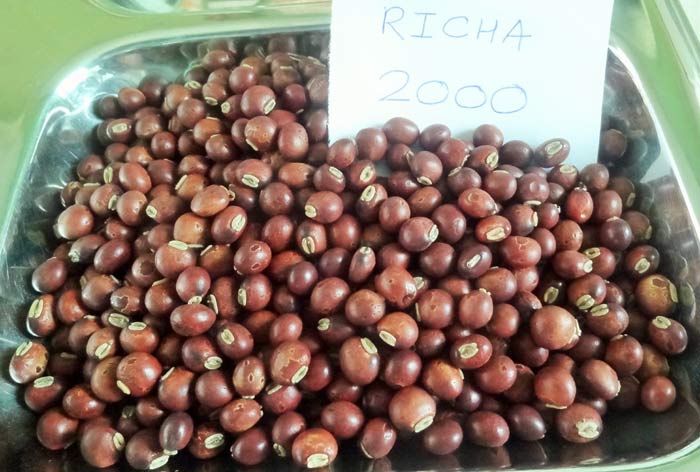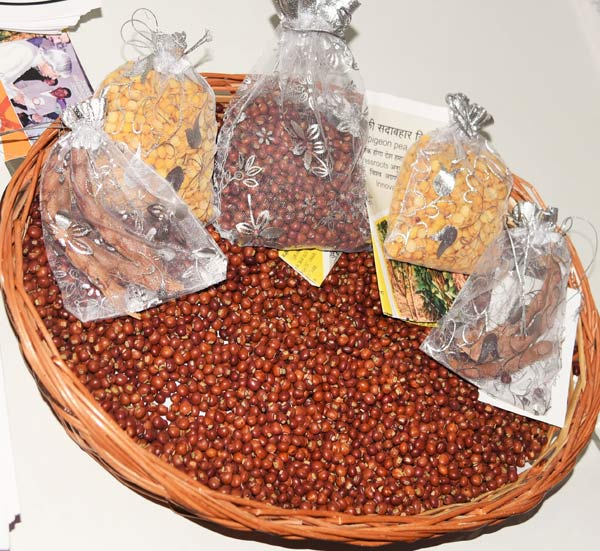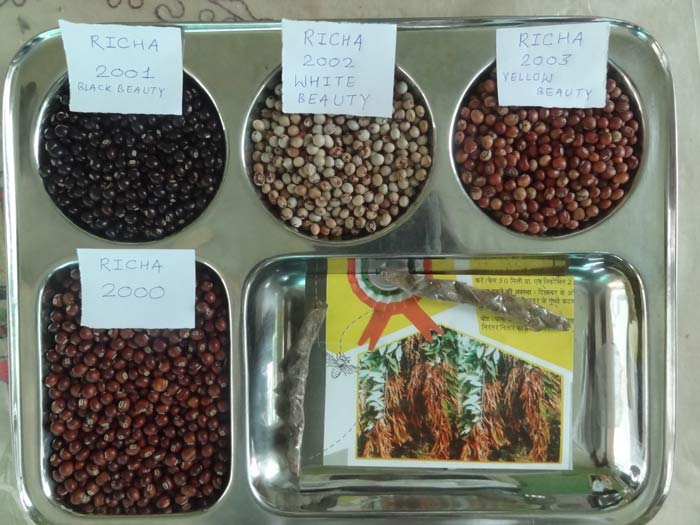Background
RajKumar Rathore (53) is a progressive farmer who has developed a perennial pigeon pea variety having a bushy growth and good yield. He is the eldest of the six siblings: three brothers and sisters. He is an arts graduate and lives with his wife, son, and daughter. Wheat is the main crop grown in the area followed by pigeon pea and soybean. Earlier, sugarcane was widely grown in his area but after the only sugar mill closed down, people switched over to other crops. He studied in a village school. Since his father’s farm was near, he sometimes used to work on the land and help his father. As a child, he used to like pigeon pea fields and was always interested in its cultivation. His father also had an innovative bent of mind. He also used to experiment a lot in his field. Like every child, Rathore also used to play with a number of things; make and break articles. He has eighteen acres of land; he grows wheat and soybean on fifteen acres, on another two acres is his horticulture garden where he grows mango, strawberry, litchi, etc. and the remaining one acre he produces pigeon pea seeds. His logic for allotting only one acre to seed production is that it would not be possible for him to maintain the quality and purity of the seeds on a larger area. He has improved other crop varieties and technological innovations like ‘Rajyog’ wheat variety, ‘RICHA 2001’ pigeon pea variety, ‘Radha’ paddy variety, ‘Soyashri’ soybean variety, a technique of preservation of strawberry, and a weed removing device attached to the motorcycle.
Genesis
In 1997, he chanced upon a different plant in his field of ICPL-87119. This unusual plant drew his attention whenever he moved around in the field. It had bigger flowers that had two colours; its leaves were long and the plant remained green for a longer duration. Further, its pods grew at the top and in bunches. Noticing the feature he thought if he was able to increase the pod bearing and number of branches in the plant the yield can be improved. Based on this thought, he harvested the plant separately for sowing it in the next season. Seed harvested from the selected plant were sown in isolation the next year, to observe the growth and the various characters, which fascinated the farmer. He observed that the plants bore very few branches and hence tried out many things like using growth promoters available in the market to increase the number of branches. But, he did not achieve any significant success. Then he tried cutting the top a day prior weeding to facilitate better growth, to restrict further vegetative growth, and enhance branching. Six branches emerged as a result. He repeated the practice of clipping/topping twice (45 and 90 DAS) and observed that a total of 12-14 branches emerged from the plant. He repeated this for three crop seasons thereby standardizing the technique and multiplying seeds to a sufficient number by 2000. He submitted some seeds for the trial to IFFCO, Bhopal, and also sent them to various farmers in 5-6 states. He took his seeds to RAK Agriculture College, Sehore. For the testing and support, he submitted the seeds to the Indian Council of Agricultural Research, Delhi (in 2000), and Banasthali Vidyapeeth, Rajasthan (2002). He has been getting very encouraging feedback from farmers wherever he has sent the seeds. His wife has always been a source of inspiration and a pillar of support throughout. Other family members asked him not to waste time unnecessarily as they were skeptical about the success of his endeavor. Dr. SP Shukla IFFCO helped and encouraged him a lot. One of his cousins and her husband in Bhopal always supported and motivated him. Today his children are also helping him in his agricultural work. They help in packing and forwarding of the seeds to the customers. His wife helps in handling seed inquiries, packaging and forwarding of the items, and maintaining the records. He has also incurred losses as people often used to take seeds without paying him money. He has started an agricultural equipment shop in his home where he sells sprayers, pumps, pipes, etc. and even plans to display selected National Innovation Foundation- India (NIF) technologies in his shop. He also wants to help NIF in generating more entries by being a scout and bringing to the front more innovators like him. He was also invited by NIF to be part of the member of the panel of informal experts in May 2006.
NIF has facilitated the evaluation and registration of the variety under PPV & FR Act 2001. For his outstanding effort in variety development, he was appreciated at the state and national levels. He was also awarded in 4th National Grassroots Innovation Awards organized by National Innovation Foundation- India at Rashtrapati Bhawan, New Delhi. NIF also provided him the Micro Venture Innovation Fund (MVIF) support for Seed Production & Trial Marketing. MVIF is unique as it is the first and only-of-its-kind micro-venture risk fund in the world, which extends financial support to grassroots innovators under a single signature on a simple agreement of understanding, without any collateral or a guarantor. With the support of NIF the seeds of RICHA 2000 have been disseminated to farmers of Gujarat, Madhya Pradesh, Karnataka, Tamil Nadu, Maharashtra, Chhattisgarh, Odisha, Telangana, and Andhra Pradesh. Presently Rajkumar distributes about 4-5 quintal of seed every year.
Shri Rajkumar Rathore has been awarded in 4th National Grassroots Innovation Awards of National Innovation Foundation
PPVFRA Registration No.: REG/2009/326
- Perennial variety, which can be harvested twice in a year
- More number of pods per plant
- Higher yield of 18-24 q/ac
- Length of the pod is 3.0 – 4.0 inches
- More number of seeds per pod (5-6)
- Disease tolerant










